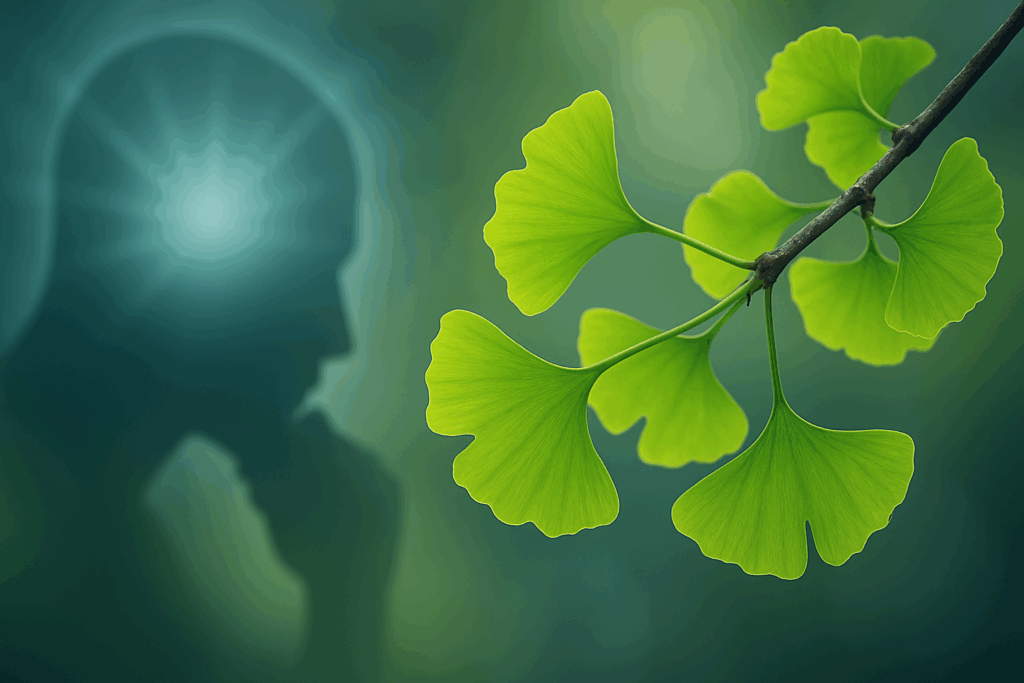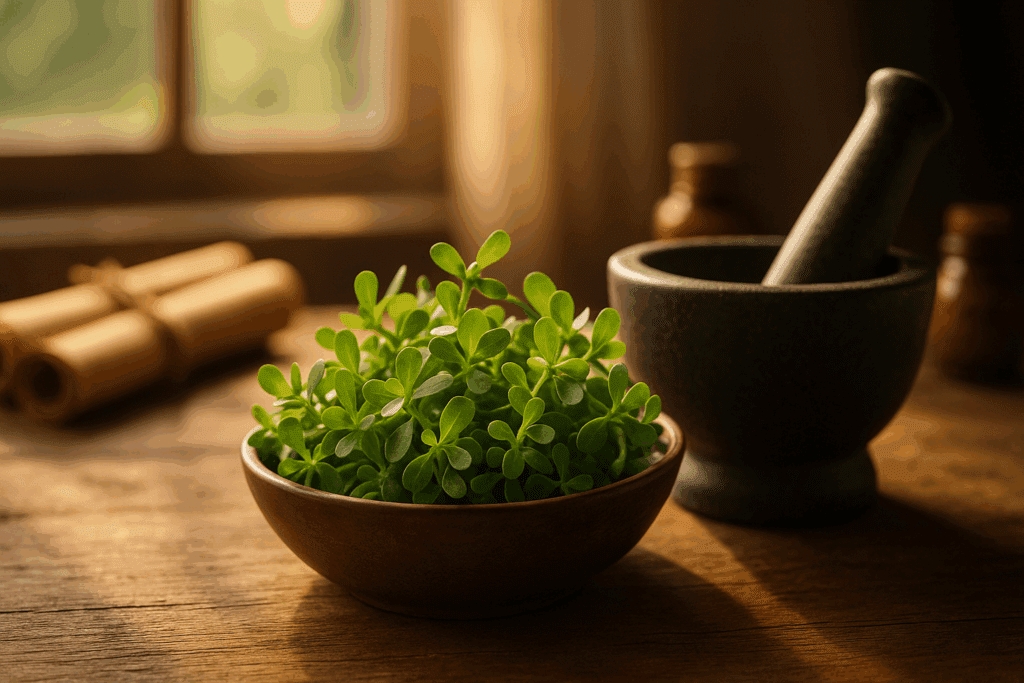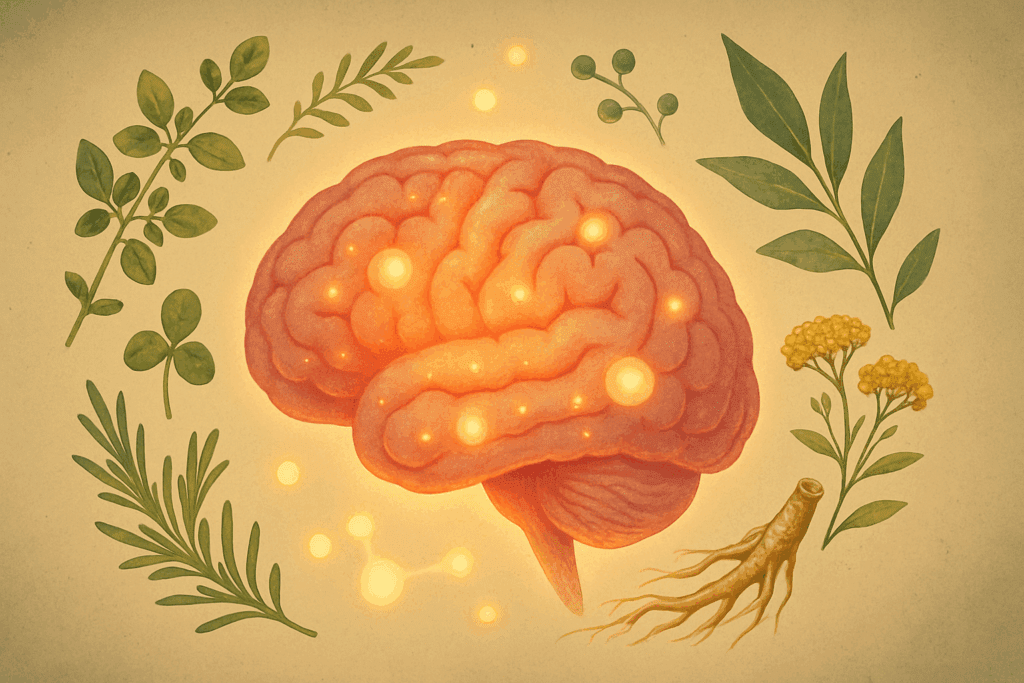Understanding ADHD and the Growing Interest in Natural Support
Attention-Deficit/Hyperactivity Disorder (ADHD) is a complex neurological condition that affects millions of people worldwide, both children and adults. Characterized by persistent patterns of inattention, hyperactivity, and impulsivity, ADHD can significantly impact daily life, academic success, career progression, and personal relationships. Although prescription medications like stimulants remain the standard treatment, a growing number of individuals are exploring complementary natural options to support cognitive health, mood stability, and focus. Herbs have gained significant attention for their potential to provide a gentler, holistic adjunct to conventional therapies. In particular, the search for the best herb for ADHD has led researchers, clinicians, and individuals to evaluate a wide range of botanical candidates with promising neurocognitive benefits.
You may also like: Where to Buy Bacopa Monnieri: How to Find Quality Supplements for Cognitive and Memory Support
As this exploration continues, the need for evidence-based, trustworthy information becomes critical. Readers seek authoritative, experience-backed content that offers realistic insights without exaggerated promises. By evaluating the available scientific research and understanding how natural substances can play a role alongside conventional care, individuals can make better-informed choices about their cognitive wellness journey.

How Herbal Remedies May Influence Cognitive Function
Herbs that are considered potentially beneficial for ADHD symptoms often share a few common mechanisms: modulation of neurotransmitters like dopamine and norepinephrine, neuroprotective antioxidant effects, and support for emotional regulation. Unlike pharmaceutical treatments that often act quickly but come with the risk of significant side effects, herbal options may offer subtler, longer-term support with a different side-effect profile. Herbs are also known to promote overall brain health, which may be especially valuable given the complex nature of ADHD, where cognitive clarity, emotional regulation, and executive function are all deeply intertwined.
When evaluating the best herb for ADHD, it’s important to distinguish between herbs that merely boost general brain function and those that have more targeted effects relevant to attention, impulse control, and mood stability. Notably, diet and nutrition also play critical roles. For instance, incorporating the best foods for brain fog and maintaining the best diet for brain fog can further enhance the effectiveness of herbal interventions. This integrated approach recognizes that cognitive performance is influenced by multiple interdependent factors.
Ginkgo Biloba: Ancient Wisdom for Modern Focus
Ginkgo biloba, a revered botanical in Traditional Chinese Medicine, has been studied extensively for its cognitive-enhancing properties. Ginkgo’s mechanisms are multifaceted: it improves cerebral blood flow, provides antioxidant protection against oxidative stress, and may help regulate neurotransmitter systems implicated in ADHD. Several studies suggest that Ginkgo biloba can improve attention, memory, and executive functioning, which are core challenges in ADHD. Although it may not replace conventional treatments, it can serve as a valuable adjunct, particularly for individuals seeking to minimize pharmaceutical side effects.
Furthermore, Ginkgo’s neuroprotective qualities make it a candidate not only for ADHD support but also for broader cognitive resilience. When combined with a supportive diet rich in foods to help brain fog, the synergistic effects can be even more pronounced. Incorporating foods like leafy greens, berries, and omega-3-rich fish—known among the best foods for brain fog—may optimize Ginkgo’s potential benefits.

Bacopa Monnieri: Traditional Adaptogen with Modern Applications
Another botanical with a strong reputation for cognitive support is Bacopa monnieri. Long used in Ayurvedic medicine, Bacopa is classified as an adaptogen, meaning it helps the body resist physical and mental stressors. Bacopa has been shown to enhance cognitive function by modulating levels of key neurotransmitters, promoting synaptic communication, and reducing neuroinflammation. Clinical trials have found improvements in attention, processing speed, and working memory following Bacopa supplementation.
Its adaptogenic nature is particularly relevant for ADHD, where stress and emotional dysregulation often exacerbate symptoms. Bacopa’s gentle but profound impact on the nervous system aligns with a holistic approach that includes both lifestyle modifications and mindful nutrition. As with Ginkgo, the best results often occur when Bacopa supplementation is accompanied by consuming the best diet for brain fog, ensuring that the brain receives both botanical and nutritional support.
Rhodiola Rosea: Enhancing Energy, Reducing Fatigue
Cognitive fatigue is a lesser-discussed but crucial component of ADHD, often contributing to inattention and emotional lability. Rhodiola rosea, another celebrated adaptogen, offers potential in mitigating this fatigue. Research indicates that Rhodiola can increase mental stamina, reduce feelings of burnout, and enhance resilience under stress, largely through its effects on neurotransmitters and energy metabolism within brain cells.
For individuals with ADHD, sustaining focus across extended periods—whether during academic study or workplace tasks—can be particularly challenging. Rhodiola may help smooth out the peaks and troughs of cognitive energy, promoting more consistent performance. Including brain-nourishing foods to help brain fog can further amplify Rhodiola’s benefits, creating a comprehensive strategy to combat the multifaceted challenges of ADHD.
Panax Ginseng: Traditional Tonic for Modern Mental Challenges
Known for its invigorating properties, Panax ginseng has been studied for its cognitive and mood-enhancing effects. Ginsenosides, the active compounds in Panax ginseng, appear to exert complex effects on neurotransmission, neuroplasticity, and brain energy metabolism. Some studies suggest that ginseng supplementation may lead to improved attention, working memory, and processing speed—qualities that are often diminished in ADHD.
While ginseng is not a cure-all, its broad action on cognitive function positions it as a compelling candidate among herbs that may support ADHD management. To fully harness its potential, it is important to pair herbal supplementation with nutritional strategies, such as integrating the best foods for brain fog into daily meals. Together, these approaches can support a more vibrant, sustainable cognitive function without relying solely on pharmaceutical solutions.

Lemon Balm: Calming the Mind Without Sedation
Lemon balm (Melissa officinalis) is another herbal ally that deserves attention when discussing the best herb for ADHD. Traditionally used to promote relaxation and mental clarity, lemon balm may help mitigate the anxiety and emotional dysregulation that often accompany ADHD. Studies have demonstrated that lemon balm can improve mood, reduce restlessness, and support cognitive performance without causing sedation.
For those whose ADHD symptoms include high anxiety or difficulty winding down, lemon balm can offer a soothing influence. Integrating calming herbs like lemon balm with a consistent intake of foods to help brain fog can create a foundation for greater emotional and cognitive balance. As with any supplement, sourcing high-quality, standardized extracts is crucial to ensure safety and effectiveness.
The Role of Nutrition in ADHD and Cognitive Support
No discussion of cognitive health would be complete without addressing the pivotal role of nutrition. Research consistently underscores the impact of dietary patterns on brain function, emotional regulation, and cognitive resilience. Consuming the best diet for brain fog—one rich in antioxidants, healthy fats, and anti-inflammatory nutrients—is essential for anyone seeking to optimize mental clarity and focus.
Certain foods are particularly powerful in this regard. Leafy greens like spinach and kale, berries such as blueberries and strawberries, nuts and seeds rich in omega-3 fatty acids, and fatty fish like salmon are among the best foods for brain fog. These foods help nourish neuronal membranes, support neurotransmitter synthesis, and protect against oxidative stress. For individuals managing ADHD, prioritizing such nutrient-dense foods is a practical and accessible way to enhance the brain’s resilience and functionality.
Incorporating what foods are good for brain fog into daily meals is not only beneficial for ADHD symptom management but also promotes overall cognitive vitality. When combined with thoughtfully selected herbal supplements, the impact on cognitive performance and emotional stability can be even more profound.

Emerging Research on Herbal Synergies for ADHD
While individual herbs show promise, emerging research suggests that combining certain herbs may yield synergistic effects. For example, formulations that pair Bacopa monnieri with Ginkgo biloba or Rhodiola rosea may enhance overall cognitive function more effectively than single herbs alone. Synergistic formulations work by targeting multiple pathways simultaneously—modulating neurotransmitters, reducing oxidative stress, and improving energy metabolism—thereby offering a more comprehensive approach to ADHD management.
Such combinations must be designed carefully to avoid potential interactions and to ensure complementary rather than redundant effects. Consulting with healthcare providers knowledgeable about herbal medicine is advisable when exploring complex botanical formulations. As with any intervention, a holistic foundation that includes consistent consumption of the best foods for brain fog remains critical for maximizing outcomes.
Practical Tips for Integrating Herbs and Nutrition Into Daily Life
Successfully incorporating herbal remedies and supportive nutrition into daily routines requires planning and mindfulness. Starting with a single herb, such as Bacopa or Ginkgo, allows individuals to assess tolerance and effectiveness before introducing additional botanicals. Consistency is key, as herbs often require several weeks of daily use to exert noticeable effects.
Dietary changes can be approached similarly. Gradually increasing the intake of foods to help brain fog—such as adding a handful of walnuts to breakfast or including a serving of leafy greens at lunch—makes the transition sustainable. Meal planning around the best diet for brain fog can also help ensure that nutrient needs are met consistently without overwhelming lifestyle changes. Small, deliberate steps can lead to meaningful improvements in cognitive health over time.
Addressing Common Misconceptions About Herbal Remedies
Despite the growing enthusiasm for natural remedies, misconceptions abound. One common misunderstanding is that “natural” automatically means “safe” or “without side effects.” In reality, herbs are biologically active substances that can interact with medications and individual biochemistry in unpredictable ways. Therefore, it is important to approach herbal supplementation with the same seriousness accorded to pharmaceutical treatments.
Another misconception is the expectation of immediate results. Unlike stimulant medications that can produce rapid improvements in focus, herbal interventions often work gradually, supporting underlying brain health over weeks or months. Managing expectations and understanding the different mechanisms involved helps foster a more realistic, sustainable approach to cognitive enhancement.
A holistic perspective that integrates herbal remedies with a foundation of nutritional excellence—centered on the best foods for brain fog—offers the most promising pathway to lasting cognitive resilience and emotional balance.

Frequently Asked Questions: Best Herbs for ADHD and Cognitive Health Support
1. Can herbal supplements fully replace ADHD medications?
While herbal supplements offer a natural approach to supporting cognitive health, they typically do not replace prescription ADHD medications for individuals who require pharmaceutical intervention. Herbs can complement medical treatment by helping to stabilize mood, improve focus, and enhance cognitive resilience. For example, combining targeted herbal support with the best diet for brain fog can create a more holistic foundation for managing symptoms. By focusing on foods to help brain fog and integrating strategic herbs, individuals may find they can reduce their reliance on higher medication doses. However, any decision to adjust medication should always involve a consultation with a healthcare professional.
2. What are some overlooked foods that can help with brain fog and ADHD symptoms?
Many people are aware of common choices like blueberries and salmon, but there are several underrated foods that can play a powerful role in cognitive clarity. Pumpkin seeds, rich in magnesium and zinc, are among the best foods for brain fog and can support neurotransmitter balance. Similarly, fermented foods like kimchi and sauerkraut enhance gut health, which emerging science links to improved brain function. Exploring what foods are good for brain fog beyond the usual recommendations can reveal hidden gems that amplify herbal strategies. A diverse, nutrient-rich diet remains critical for sustainable cognitive support.
3. How long does it usually take to notice benefits from herbal supplements for ADHD?
Herbal remedies often require a longer timeframe to manifest noticeable improvements compared to conventional ADHD medications. Generally, consistent use for at least eight to twelve weeks is necessary to observe measurable changes in focus, mood, or cognitive stamina. This timeline reflects the gradual nature of herbs, which build up beneficial effects rather than providing immediate symptomatic relief. Meanwhile, maintaining a consistent intake of the best foods for brain fog can accelerate these benefits by optimizing brain nutrient availability. Patience and persistence are key components of a successful natural ADHD support strategy.
4. Are there any lifestyle factors that can amplify the effects of herbal remedies for ADHD?
Absolutely. Lifestyle choices profoundly influence how well herbal supplements perform. Regular physical exercise, particularly aerobic activities, enhances blood flow to the brain and supports the same neurotransmitter systems targeted by herbs like Bacopa monnieri. Mindfulness meditation, adequate sleep, and strategic consumption of food for brain fog also synergize with botanical interventions. Creating a comprehensive self-care routine ensures that herbs do not work in isolation but are part of an integrated strategy to promote cognitive health and emotional resilience.
5. Can herbal supplements interact negatively with prescription ADHD medications?
Yes, certain herbs can interact with prescription drugs, sometimes enhancing or diminishing their effects. For example, Ginkgo biloba may theoretically increase bleeding risk when combined with stimulant medications that affect blood pressure. It is crucial to consult a healthcare provider before adding herbs, especially if you are taking medications like Adderall or Ritalin. Additionally, monitoring your diet by including the best foods for brain fog helps create a safe, supportive internal environment that minimizes potential adverse interactions. Thoughtful integration of herbs and nutrition maximizes benefits while safeguarding against unintended effects.
6. What role does gut health play in ADHD and cognitive performance?
Emerging research increasingly points to the gut-brain axis as a critical player in cognitive function and emotional regulation. A disrupted gut microbiome can lead to systemic inflammation and neurotransmitter imbalances, both of which are implicated in ADHD. Therefore, incorporating foods to help brain fog that also support gut health, such as yogurt, kefir, and fiber-rich vegetables, can enhance both digestive and cognitive well-being. Probiotic-rich foods can complement herbal strategies by promoting a healthier internal environment, improving nutrient absorption, and indirectly stabilizing mood and focus. Gut health is a foundational pillar often overlooked in natural ADHD management.
7. Are there specific times of day when taking herbs is most effective for ADHD support?
Timing can significantly influence the effectiveness of herbal supplements. For herbs that promote alertness and cognitive energy, such as Rhodiola rosea or Panax ginseng, morning or early afternoon dosing is typically optimal. Herbs with calming effects, like lemon balm, may be best taken in the evening to support relaxation and quality sleep. Aligning your supplement timing with your body’s natural circadian rhythms—along with consuming the best diet for brain fog—can amplify cognitive performance throughout the day. Paying attention to your body’s response patterns helps fine-tune your herbal and nutritional approach.
**8. What are some emerging trends in natural ADHD support?
**Recent trends point to a growing interest in personalized herbal protocols and microbiome-focused nutrition plans for ADHD. Advances in genetic testing and microbiome analysis allow for tailoring interventions more precisely to an individual’s unique biochemistry. Additionally, nootropic blends that combine multiple herbs in scientifically validated ratios are gaining popularity. As always, foundational elements like food for brain fog continue to be emphasized, as diet profoundly influences cognitive outcomes. Keeping an eye on these trends allows individuals to benefit from cutting-edge strategies rooted in both tradition and modern science.
9. Can diet alone significantly impact ADHD symptoms without supplements?
In some cases, yes. A carefully crafted nutritional strategy can make a profound difference in cognitive performance and emotional regulation. Consistently eating the best foods for brain fog—including leafy greens, berries, nuts, seeds, and oily fish—can help stabilize blood sugar, reduce inflammation, and optimize neurotransmitter synthesis. While herbs add another powerful layer, food remains a primary and indispensable tool in managing ADHD naturally. Understanding what foods are good for brain fog and building meals around them is a cornerstone strategy that stands the test of time.
10. What are some practical first steps for someone interested in using herbs and diet for ADHD support?
Starting with one or two well-researched herbs—such as Bacopa monnieri or Ginkgo biloba—allows for clear assessment of benefits without overwhelming the body. At the same time, making small but impactful dietary changes, such as swapping processed snacks for walnuts and blueberries, builds a sustainable foundation. Consulting a healthcare provider familiar with herbal medicine ensures personalized, safe guidance. Over time, integrating a greater diversity of foods to help brain fog and fine-tuning your herbal regimen can create a tailored, effective cognitive support plan. Embracing gradual, intentional change is the most sustainable path to lasting improvements in focus, mood, and cognitive vitality.

Conclusion: Crafting a Holistic Path to Cognitive Health and ADHD Management
Navigating the complexities of ADHD requires a multidimensional approach. While pharmaceutical interventions remain essential for many, the search for the best herb for ADHD highlights the potential of natural support strategies that align with the body’s innate healing systems. Herbs like Ginkgo biloba, Bacopa monnieri, Rhodiola rosea, Panax ginseng, and lemon balm offer compelling possibilities for enhancing focus, mood, and cognitive stamina.
However, herbal supplementation should not exist in isolation. Consuming the best foods for brain fog, prioritizing the best diet for brain fog, and integrating foods to help brain fog consistently into one’s lifestyle are equally critical pillars of cognitive health. By understanding what foods are good for brain fog and combining them with thoughtfully selected botanicals, individuals can create a powerful, sustainable foundation for mental clarity, emotional resilience, and peak performance.
Ultimately, the journey to enhanced focus and cognitive vitality is a holistic one—embracing the synergy between nature’s botanicals, nutrition science, and mindful self-care. With careful attention to quality, consistency, and evidence-based practice, it is possible to chart a path that honors the complexity of the human brain while offering hope and healing through the best of natural medicine.
Was this article helpful? Don’t let it stop with you. Share it right now with someone who needs to see it—whether it’s a friend, a colleague, or your whole network. And if staying ahead on this topic matters to you, subscribe to this publication for the most up-to-date information. You’ll get the latest insights delivered straight to you—no searching, no missing out.
Further Reading:
7 Best Herbs for Memory and Brain Health
7 Best Cognitive Enhancers For ADHD
.Important Note: The information contained in this article is for general informational purposes only, and should not be construed as health or medical advice, nor is it intended to diagnose, prevent, treat, or cure any disease or health condition. Before embarking on any diet, fitness regimen, or program of nutritional supplementation, it is advisable to consult your healthcare professional in order to determine its safety and probable efficacy in terms of your individual state of health.
Regarding Nutritional Supplements Or Other Non-Prescription Health Products: If any nutritional supplements or other non-prescription health products are mentioned in the foregoing article, any claims or statements made about them have not been evaluated by the U.S. Food and Drug Administration, and such nutritional supplements or other health products are not intended to diagnose, treat, cure, or prevent any disease.


